Hidden in Plain Sight: Development Trusts Are Already Delivering Community Learning and Development

A new report reveals a disconnect between the work Development Trusts are doing and the recognition they receive for it
Development Trusts across Scotland are quietly delivering Community Learning and Development (CLD) work—they don’t always realise it. The findings from the research done by the Development Trusts Association Scotland (DTAS) and CLD Standards Council Scotland, which surveyed 59 DTAS members to understand how they engage with CLD.
The Numbers Tell a Story
The findings reveal both the scale of unrecognised work and the desire for change:
- 52% of Development Trusts are already running CLD activities, even without labelling them as such
- 92% feel their CLD work doesn’t get the recognition it deserves
- 78% hadn’t heard of the CLD Standards Council before this survey
- Just 5% have staff registered with the CLD Standards Council
- No DTAS members currently hold the CLD Standard Mark
When projected across DTAS’s full membership, this suggests around 52% Development Trusts are delivering CLD work, with roughly 93% wanting better recognition for their efforts.
What’s Actually Happening on the Ground
The disconnect isn’t about a lack of activity—it’s about recognition and connection. Development Trusts are running digital skills workshops, youth volunteering programmes, community-led planning initiatives, and managing local assets for public benefit. These activities align with CLD’s three core areas: adult learning, youth work, and community development.
For example, The Langholm Initiative’s Tarras Valley project, which focuses on outdoor youth education through leadership and confidence-building programmes, is clearly labelled as youth work and is recognised as such. Or Appin Community Development Trust, which operates community transport and care services that support adult learning and community development, though they don’t currently classify these as CLD activities.
The Third Sector Recognition Gap
Perhaps most telling is that 92% of respondents believe their CLD work should be better recognised. As one Trust put it: “Development Trusts are filling the void left by shrinking local authority CLD services. That contribution should be visible.”
This isn’t just about validation—it’s about ensuring the third sector gets proper recognition for its role in delivering CLD across Scotland. When community organisations can’t articulate their CLD impact, this can lead to challenges with:
- Securing funding
- Policy development
- Partnership opportunities
- Professional development
How Development Trusts Can Start Getting Recognition
Step 1: Look at Your Work Through a CLD Lens
Many Development Trusts are already delivering CLD without realising it:
- Digital literacy programmes
- Employability training
- Youth development activities
- Community capacity building
- Asset-based community development
- Family learning initiatives
Step 2: Learn the Language
Start using Community Learning and Development terminology when describing your work. This helps funders and partners recognise your contribution to Scotland’s CLD landscape.
Step 3: Connect with CLD Professionals
Reach out to your local authority CLD team and the CLD Standards Council. These should be natural partners in strengthening community learning across your local area.
Step 4: Document Your Impact
Begin measuring learning outcomes, not just activities:
- How many people gained new skills?
- What confidence changes occurred?
- Which community assets were strengthened?
Step 5: Explore Formal Recognition
Consider CLD Standards Council membership for relevant staff and investigate the CLD Standards Mark for your organisation. This formal recognition opens doors to new opportunities for individuals, but also for your local community.
What Others Could Do
For Funders and Policymakers:
- Include third sector organisations in CLD mapping and planning
- Ensure funding criteria acknowledge the full range of CLD providers
- Support professional development for community sector practitioners
For CLD Professionals:
- Reach out to Development Trusts in your area
- Share resources and expertise to strengthen community-led CLD work
- Advocate for third sector inclusion in formal CLD networks
Voices from the Sector
The research captured reflections from Trust representatives about the current situation:
“Most Trusts deliver CLD work without labelling it as such. DTAS could help by identifying these efforts and promoting them collectively.”
“The sector lacks cohesion. Many Trusts don’t view CLD as part of their mission, and the gap between statutory and community-led CLD leads to inefficiency. We need better alignment.”
One CLD-qualified Trust manager noted: “I’m working to help our staff recognise the CLD aspects of their work, though it’s an ongoing process.”
Frequently Asked Questions
Q: How do I know if my Development Trust is doing CLD work?
If you’re running skills training, youth programmes, or community development activities that help people learn and grow, you’re likely doing CLD work. The three core areas are adult learning, youth work, and community development.
Q: What are the benefits of formal CLD recognition?
Access to new funding streams, professional development opportunities, stronger partnerships with statutory providers, and increased credibility with funders and policymakers.
Q: Do we need CLD qualifications to do this work?
Not necessarily, but formal qualifications help with recognition and can improve practice. Many excellent CLD practitioners develop expertise through experience and professional development.
What Happens Next
The overwhelming consensus for greater recognition creates a clear need for action. DTAS and the CLD Standards Council have started to develop a roadmap for strengthening engagement with Development Trusts and developing practical guidance for gaining recognition for the work they’re already doing.
The message from the sector is clear: it’s time to bring Development Trusts’ CLD work out of the shadows and give it the recognition and support it deserves.
As one respondent summarised: “Recognising our CLD work might help secure core funding, especially as local authority CLD services decline.”
The research shows that Development Trusts aren’t just willing partners in Scotland’s CLD landscape—they’re already essential players delivering Community Learning and Development across communities nationwide.
Read the full “Community Learning and Development (CLD) in Development Trusts” research report for detailed findings and recommendations.
